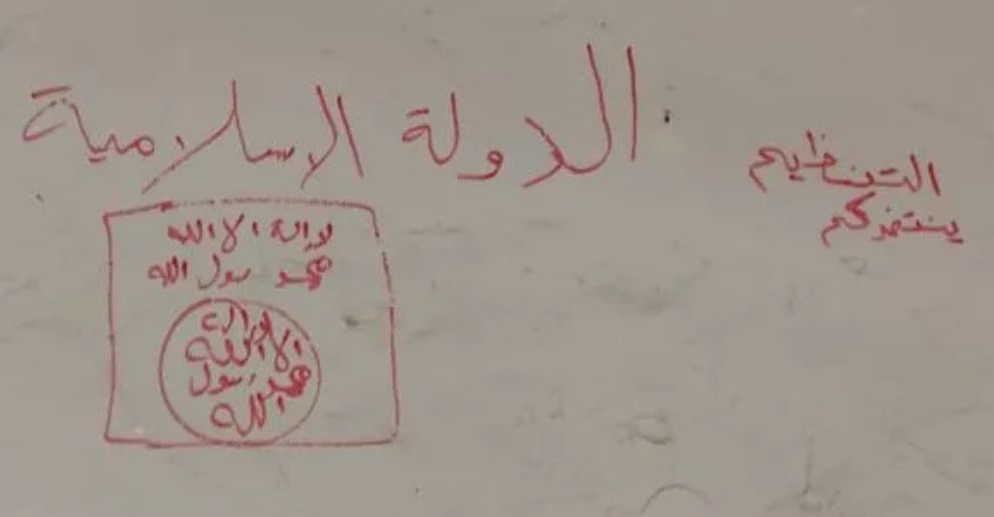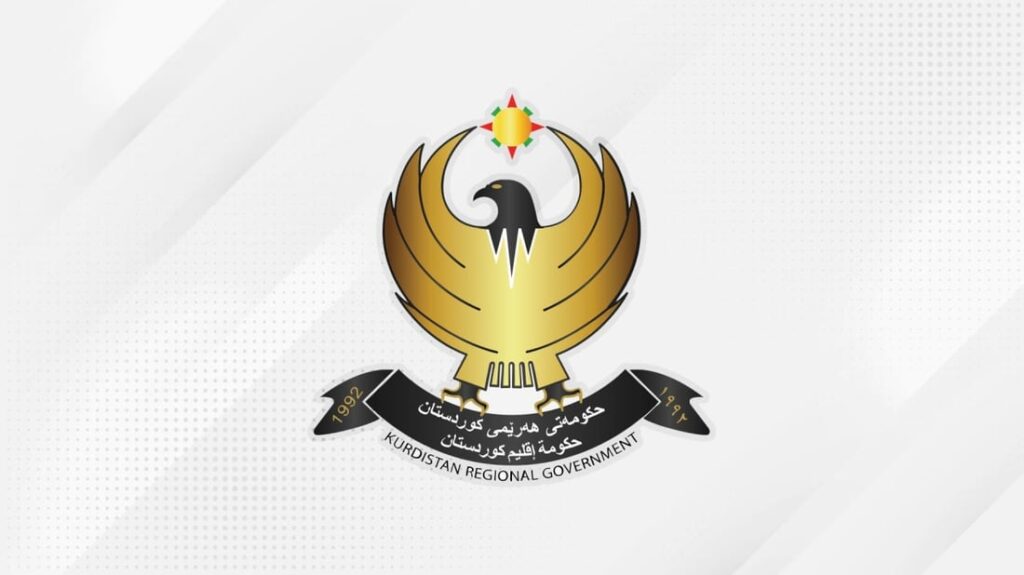KRG owes $10 billion in back pay to public sector employees

The salary-saving system was part of austerity measures adopted in 2014 by the KRG after its budget share was cut by Baghdad, oil prices plummeted, and war with ISIS erupted, driving some 2.5 million people to seek safety in the Kurdistan Region.
Bearing the brunt of the financial crisis, teachers, health workers, and civil servants protested across the Region.
Earlier this year, the Iraqi parliament passed the 2019 budget that included guaranteed payments of KRG salaries.
In an exclusive interview with Rudaw, KRG Minister of Finance Rebaz Hamlan explained how the government will now tackle its huge debts – to civil servants, banks, and private companies.
He argued that the central government should take some responsibility since Baghdad’s failure to pay the Kurdistan Region its share of federal funds was part of the problem.
The following is a translation of Hamlan’s interview on the Rudawa Iro programme, edited for clarity and length.
Hiwa Jamal (Rudaw): How much does the KRG owe its employees?
Rebaz Hamlan: We have opened a division in the Council of Ministers called ‘The office of managing Kurdistan Region debts.’ This department manages all the details of the debts of the ministries of natural resources, finance, and the government as a whole. It records all these details every month.
the Iraqi government should shoulder this responsibility
Our [focus] is mainly about the KRG commitment to the amount of money saved on its employees’ salaries or the KRG commitment to those contractors who have finished their projects and we haven’t been able to pay them. These are our commitments. And this department deals with these commitments.
Will you pay interest on these debts?
No.
How much does the KRG owe its employees?
Some.
Approximately?
More than – nearly 10 billion [dollars].
So the government owes 10 billion to its employees?
All employees.
What is the mechanism for paying back this debt?
When a decision was made to pay reduced-salaries, it should have been fixed that the decision was mainly due to the Iraqi government cutting the Kurdistan Region’s budget in 2014. According to the constitution and annual budget, the central government is responsible for paying employees their salaries.
The Kurdistan Region has never taken the initiative to cause problems even in the past
The Iraqi government tells us we are its citizens and that the Kurdistan Region is part of Iraq. If that is the case, then what’s the difference between an employee serving the government in the Kurdistan Region or an employee serving the government in Baghdad or Basra? They both serve the same country, and that is Iraq. According to the constitution, they should commit to paying salaries for these employees.
The KRG was forced to decide to pay reduced-salaries because the KRG was paying its employees on the basis of its income. Oil prices unfortunately plummeted at that time, falling from $110 to $50. Internal revenues made at border crossings also lessened because of the war on ISIS. These things are interrelated. This made the KRG pay its employees on the basis of revenues it was making.
Now that an amount has been saved on their salaries, the Iraqi government should shoulder this responsibility. This should have been fixed when the decision to pay reduced salaries was made because they were the main reason behind the decision.
The KRG might have been negligent in not fixing this at that time. But what is the mechanism for paying back the amount saved from the salaries of the employees?
Two ways of doing so have been discussed. First, in yesterday’s meeting of the Council of Ministers, section 2 says the KRG will solve the problem of old debts and saved salaries in negotiation with Baghdad. [Second], last year, we sent the reform law to the Kurdistan parliament. One of its most important sections is paying back the saved salaries according to a law. And both ways have been taken.
Will you wait for the parliament to pass a bill on repaying these debts? People only focus on the issue of oil, but our problem with Baghdad is not only about oil
I reassure the people of the Kurdistan Region that this law will be passed in this fifth term of parliament this year.
How much do you owe companies?
This is a multi-faceted matter. There are different budgets in the Kurdistan Region – petrodollar budget, investment budget, direct enforcement budget given to provinces. And we have classified all these debts.
Recently, we paid back $100 million to contractors and another $100 million is ready to pay back to them this week. This amount has been provided by the ministry of natural resources and sent to the ministry of finance to settle these debts. We have also paid back $220 million to private banks and we are paying back $10 million to private banks every month in coordination with the central bank.
So what is the total debt of the KRG now?
I cannot give you a number right now. Last year, we paid back many debts and a small amount is left to be paid back.
People fear that they will be paid reduced salaries if Baghdad doesn’t send the budget or you don’t send oil through SOMO.
Political stability and the absence of war or rivalry is an important factor for financial stability and the financial situation of people as
We know what our rights are as the Kurdistan Region and will not move towards being Iraq
well. The more we coordinate with Baghdad and have mutual understanding, the more able we are to resolve all these problems. The Kurdistan Region has never taken the initiative to cause problems even in the past. Rather, it was Baghdad causing problems.The people of Kurdistan will get all their rights as enshrined in the constitution if Baghdad commits to the constitution which is recognized by all the people of Iraq. It’s our own just rights to ask for our own entitlements enshrined in the constitution. That is why I think we shouldn’t be pessimistic about this matter. I am very optimistic that this is a good beginning for the Kurdistan Region now and in the future.
How will the KRG reach an agreement with Baghdad to ensure what happened in the past doesn’t recur?
The KRG assigned the Oil and Gas Council yesterday to conduct detailed negotiations with Baghdad. People only focus on the issue of oil, but our problem with Baghdad is not only about oil. Last year, we took many positive steps which have now born fruit. For example, we have eliminated tax disparities between Baghdad and here and equalized customs fees, which are now the same from Umm al-Qasr [port in Basra] up to Ibrahim Khalil [border crossing with Turkey]. We have taken many positive steps.
So you have started a good process of going back to Iraq as you have tied everything to Baghdad?
This is about sovereignty and the constitution. For example, the issue of border crossings is fixed in the constitution. And the political leadership of the Kurdistan Region and the KRG have at all times announced its commitment to the constitution. Now, we have committed to things that fall within the realm of the constitution. We know what our rights are as the Kurdistan Region and will not move towards being Iraq. Rather, we are moving ahead towards the rights enshrined in constitution for the Kurdistan Region. That is, the Kurdistan Region has its own share in the Iraqi budget. What would be the use of our MPs in Baghdad if they don’t follow up on our rights?
Now that the salary-saving system has been scrapped, what guarantees are there that KRG employees will receive their full salaries regularly?
There are guarantees. Relations between the political leadership in the Kurdistan Region and Baghdad have now improved. The Iraqi prime minister has a very important role to play in this regard. He lived in the Kurdistan Region and understands the needs of the Kurdistan Region and its people. And he speaks about this every time. The president of Iraq is a Kurd and we have MPs working in
We dedicate 68 percent of our budget to employees in the Kurdistan Region
Baghdad. They will all play important roles in this matter. In addition, the Iraqi minister of finance is also a Kurd who is vested with the authority to make decisions on many subjects.Is it systematic or are you just making people happy?
The issue of salaries is systematic. But Iraq has not yet recognized the big number of employees in the Kurdistan Region. We dedicate 68 percent of our budget to employees in the Kurdistan Region. This is a huge amount given that only 35 percent of the budget in a neighbor like Turkey is dedicated to employees. That is why Iraq has not recognized this number.
Now and in the past, the Iraqi government has never sent full salaries of the employees of the Kurdistan Region, even when we had good relations with them. The Kurdistan Region has always accounted for the rest of salaries on the basis of its internal and oil revenues.
Why don’t you reduce the number of your employees?
This huge number of employees will be dealt with by the reform proposals sent to the Kurdistan parliament. More than 100 billion [dinars, $83.5 million] will return to Kurdistan Region’s treasury if this problem is resolved early.
One of our past problems which we need to recognize is that hiring was not done according to the needs of departments of the Kurdistan Region or specialty. And this has caused problems. There are many people working in offices where their degrees or specialty has no relevance.
We have to dedicate 881 billion dinars ($735 million) to pay full salaries to employees. In the best case scenario, Baghdad will send 522 billion dinars ($435.7 million), which it hasn’t sent yet. It has sent 453 billion ($378 million), but hasn’t yet sent 68 billion dinars ($56.7 million) that goes to Peshmerga forces. The ministries of finance and natural resources should add to the amount to reach 881 billion dinars.













